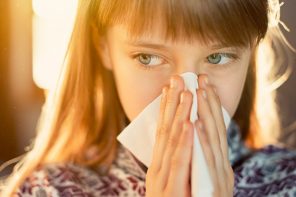Another school year is here, and parents may ask, “Does my child need immunizations this year?”
Immunizations are important because they keep our children safe, protecting them from certain infections and their complications by limiting the spread of illness. Kids usually receive immunizations when they see their pediatrician for an annual back-to-school wellness check-up. It’s a great time for your doctor to check your child’s progress and development and detect any potential problems.
A child receives their very first vaccination at birth, an initial dose to protect against hepatitis B. For a complete guide on what ages children should receive vaccines, the CDC’s 2022 update of the “Recommended Child and Adolescent Immunization Schedule for Ages 18 Years or Younger,” is an excellent resource. Keep in mind that teenagers need immunizations, too.
Each state decides which vaccines are required for your child’s enrollment and attendance at a childcare facility or school in that state.
Polio Returns to the United States
In July, the CDC reported a case of polio in an unvaccinated person in Rockland County, New York—the first case in nearly a decade in the United States—and the virus has been detected in that county’s wastewater. Polio is very contagious and can cause paralysis and even death.
The CDC recommends children get four doses of polio vaccine, starting at two months.
Keep track of your children’s vaccine record since the school where your child enrolls may require proof of vaccination. You can do this through your pediatrician’s office. Most electronic health records (EHRs) feature a patient portal to easily access or download this information. At Luminis Health, that portal is called MyChart.
COVID-19 Is Here to Stay
The recent appearance of polio in the U.S. has not reduced the importance of the COVID-19 vaccination for children.
More than 1 million Americans have died from the virus, and almost 93 million cases have been reported. “We know that COVID-19 is here to stay,” a CDC epidemiologist said at a mid-August news briefing.
The CDC recommends the COVID-19 vaccine for everyone six months or older, and boosters for everyone years and older, if eligible.
COVID-19 vaccinations for children are safe. The known risks of COVID-19 and possible severe complications outweigh the potential risks of having a rare, harmful reaction to the vaccination.
“The vaccines meet the Food and Drug Administration’s rigorous scientific standards for safety, effectiveness, and manufacturing quality,” says the CDC. They also undergo the most intense safety monitoring efforts in our country’s history.
Children 6 months to 4 years need a three-dose primary series—initial doses—of Pfizer-BioNTech, or two doses of Moderna. For kids 5 – 17 years, it’s two doses of both Pfizer-BioNTech and Moderna.
The CDC says moderately or severely immunocompromised children ages five through 17 years will need a third dose to complete their primary series, then boosters if they’re eligible. Children and teens with a weakened immune system should get one booster for ages five through 11 years and two boosters for ages 12 years and older.
Remember that the COVID-19 vaccine can cause short-term side effects such as headache, low fever, or flu-like symptoms.
 Dr. Sunil Madan is the Chief Medical Officer at Luminis Health Doctors Community Medical Center. In addition to having an MBA from University of Tennessee -Knoxville, he is board certified in emergency medicine and is a certified physician executive.
Dr. Sunil Madan is the Chief Medical Officer at Luminis Health Doctors Community Medical Center. In addition to having an MBA from University of Tennessee -Knoxville, he is board certified in emergency medicine and is a certified physician executive.



